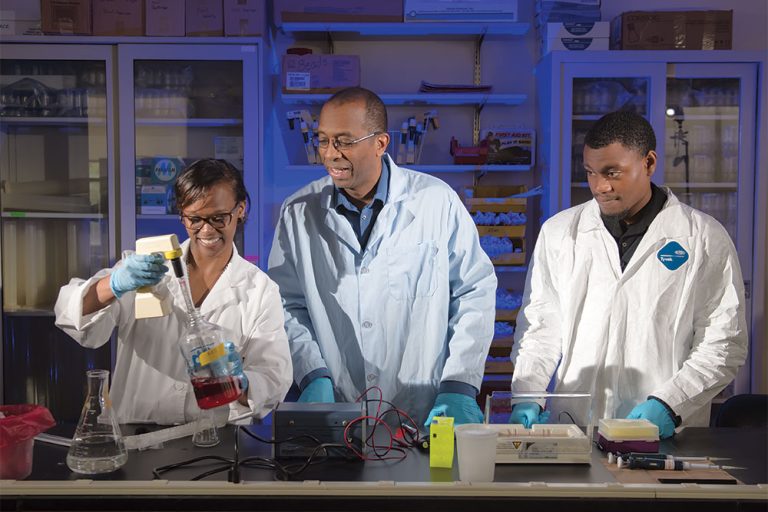Baltimore, MD’s Business and Nonprofit Communities Focus Attention on Filling Middle-Skill STEM Jobs
Learn how the Greater Baltimore Committee and the Associated Black Charities teamed up to highlight the opportunities that exist within Baltimore's STEM-related industries.

Greater Baltimore’s burgeoning innovation industries, including bioscience and information technology, are creating new opportunities for jobs tied to skills in STEM – science, technology, engineering and math.
Powerful Partnerships
The region has emerged as a leader in creating opportunities in so-called middle-skill STEM careers, those that don’t necessarily require a bachelor’s degree but can be filled by workers who have some additional training.
“Baltimore City residents face significant barriers to employment that prevent many from obtaining well-paying jobs. However, there lies great opportunity within the science, technology, engineering and math fields for individuals who do not have a bachelor’s degree but are able to obtain some education, training or certifications,” says Donald C. Fry, President and CEO of the Greater Baltimore Committee (GBC), the region’s leading business advocacy organization.
“These middle-skill jobs often pay higher wages than careers with similar levels of education and offer many opportunities for advancement,” Fry says. The GBC and Associated Black Charities partnered on a study, “STEM: Middle-Skill Career Pathways in the Baltimore Region,” to examine opportunities and recommend strategies to widen the pipeline of talent available for middle-skill STEM careers.
The study included interviews with dozens of local employers, educational institutions, nonprofit organizations and community groups. The study identified six “opportunity sectors” – advanced manufacturing, bioscience, design and construction, energy, health care and information technology – that provide great potential for meaningful careers in jobs that pay well above the median for the region.
Nearly a quarter (23.1 percent) of all jobs in the Baltimore region – more than 281,700 altogether – require high-level knowledge in at least one STEM field.
“We’re looking more at the system and how we can partner with others to move the needle,” says Diane Bell-McKoy, President and CEO of Associated Black Charities, which works to solve problems affecting the city’s African American community.
Pathway to Success
STEM careers are not limited to traditional STEM occupations such as software developers or engineers, the study found. Interviews with Greater Baltimore employers revealed that new technology is driving the demand for middle-skill STEM employees in many occupations and also driving the creation of entirely new STEM occupations.
The study noted that the average middle-skill STEM jobs pays $58,000, 61 percent more than non-STEM jobs requiring similar levels of education. Once workers enter a STEM-related industry with a certain skill set, it’s easier for them to advance into even higher-paying jobs. A number of initiatives have been launched in the region to raise awareness of opportunities in middle-skill careers.
The Community College of Baltimore County and Baltimore City Community College offer certificate programs in STEM-related fields. Maryland Career Technology Education programs give high school students a clear pathway to high-tech careers with dual enrollment courses.
Private and nonprofit organizations have stepped up their efforts as well.
The BioTechnical Institute of Maryland, for example, has begun offering tuition-free training in basic laboratory skills for unemployed and underemployed residents. The institute’s six-week BioSTART program gives students instruction in math, communication skills and professional development.
After completing the BioSTART program, students move on to receive hands-on laboratory training as well as an internship with a local biotechnology company. “If we can leverage this growing middle-skill STEM job base to its full potential” says Fry of the GBC, “it surely will open doors and offer brighter futures.”
